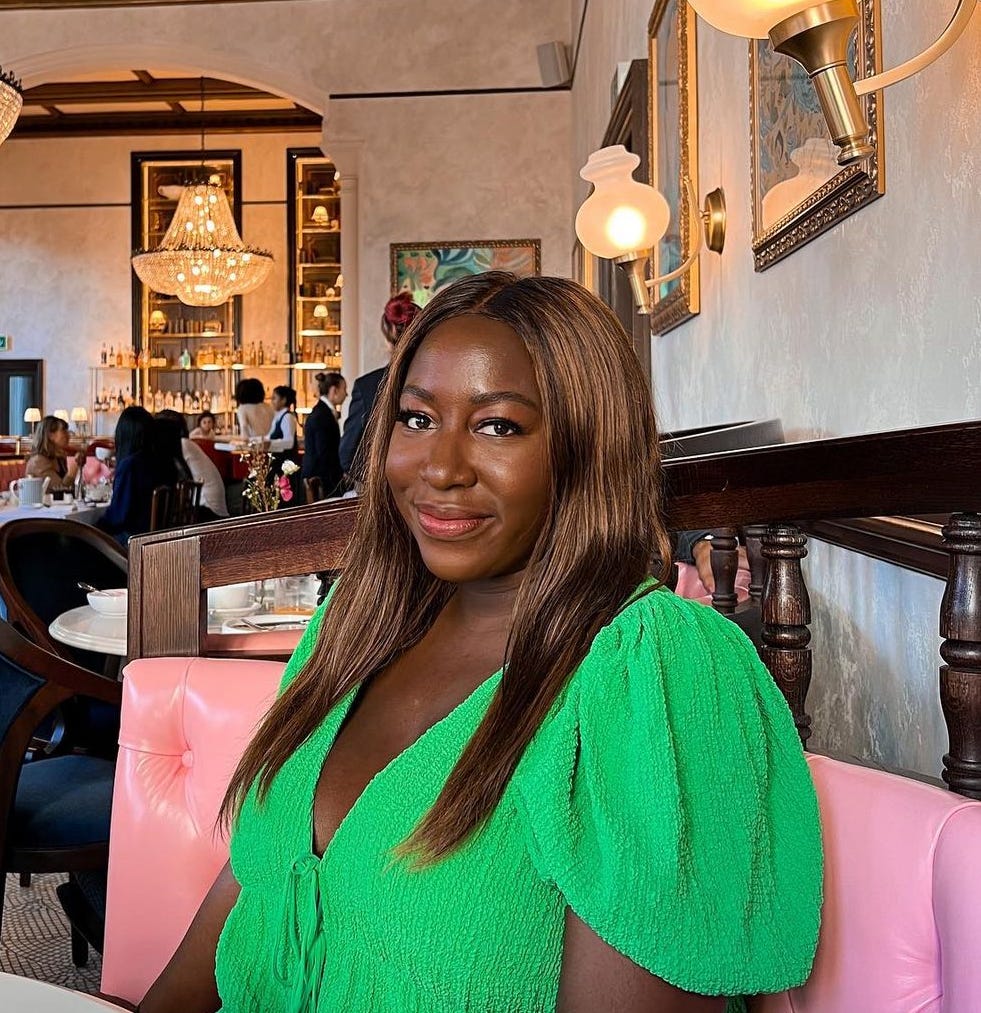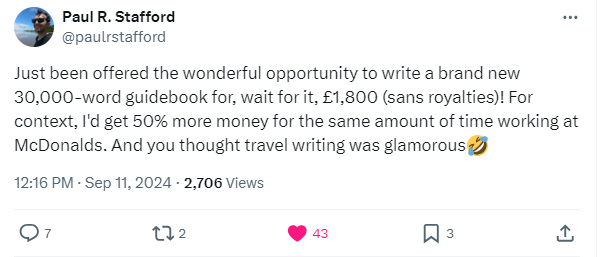Is there systemic racism in the travel media?
Vivienne Dovi kicks of our series on race and travel writing.
This month’s series focuses on race in travel writing and is free for all to read. We’ve commissioned four contributors to shed light on some of the issues writers from ethnic minorities face, and explore how others can be better allies. Here is Vivienne Dovi of Melanin Travel opening the series with a big question: is there systemic racism within travel writing?
As a Black freelance journalist championing the Black diaspora, I've often found myself navigating the complex nature of travel writing. Travel media, like many industries, is not immune to systemic racism.
The problem's roots lie in history. Travel writing resurged when Western explorers were "discovering" lands whose people were already aware of said land’s (and their own) existence. Communities were dehumanised, their traditions portrayed as exotic or inferior. Today, we still see travel media prioritising Western perspectives, neglecting voices from the regions covered.
This directly impacts writers of colour and the stories we want to tell. When I pitch adventure or heritage pieces about Africa and the Caribbean, I face editors' preconceived notions of countries they haven't yet visited. My pitches are often rejected, with diverse regions often reduced to beaches and safaris, if that.
Even when pitches are accepted, the editing process can erase particular narratives. White editors have questioned the relevance of my stories or my authority on topics related to my experiences as a Black woman. My work has been rewritten to align with familiar narratives, forcing me to push back. Editors have suggested my perspective is "too niche," or destinations aren't "big enough" — but not big to who?
These actions, though subtle, continue to marginalise non-white voices. They reinforce the idea that the default travel reader is white and our stories should be shaped around them. Lack of diversity in editorial positions leads to a narrow range of stories being commissioned, using the same writers to produce the same narratives.
Once on a press trip, this can be an isolating space for the only person of colour. Other journalists may make prejudiced comments about race, local customs or people, perpetuating these biases in their coverage. We must constantly choose between speaking up or staying silent.
While white writers get to do their jobs peacefully, writers of colour risk relationships and career advancement by calling out issues. The industry has a lot of work to do to erase centuries of racism and create an inclusive space for all journalists.
To my fellow writers of colour who persevere in this uphill battle, I offer these strategies for self-advocacy:
Connect with other writers of colour for support and advice
Seek out platforms and editors committed to prioritising diverse voices
Guard your stories with your heart. Certain bylines may look shiny, but if your experiences aren't handled with care, it can lead to more harm than good
Don't be afraid to push back against edits that misrepresent, dilute or exoticise your perspective
Call out ignorance and racism to decision-makers without worrying about being "nice." Leaders of change can’t always be nice and, quite frankly, neither is being on the receiving end of racism.
For allies, the industry can only improve with your help:
Actively amplify voices of colour in your networks
Seek out diverse perspectives beyond periods like Black History Month
Challenge stereotypical content. Don't wait for a representative of the community to do so
Pass the mic when someone else might provide a better perspective
Advocate for stories that build cultural bridges and handle them with care
By confronting systemic racism head on, we can work towards inclusive and authentic representation. After all, the essence of travel is about broadening our horizons and challenging our preconceptions — it's time for the industry itself to embody these values.
Tweet of the week
Who to follow
Us! We’re mooching about on Instagram a lot more these days. Come say hi!
Industry must-reads
It’s awards season again! Not only did our own Steph Dyson win best consumer feature at the LATA awards last week, but she’s also nominated for consumer writer in the Travel Media Awards — the shortlist is strong, so check out all the other nominations, too. The Baubles has also released their shortlists for the TravYule event in late November and you might spot several Talking Travel Writing mentors (including Lottie) on the Best Mentor shortlist. Read the full shortlists here.
Bradt Guides celebrated their 50th birthday last month and took the evening to announce their New Travel Writer of the Year Award — a great opportunity for new unpublished writers to get their name out there and get an assignment out of it, too.
We love to see that Virgin Atlantic has employed BSL training among its air crew — a good step towards better treatment for passengers with hearing loss. And we spotted this exciting development in the Bookseller: an anthology of travel writing by women.
This is the first in our free series on race and travel writing. If you’ve found this piece enlightening, support our newsletter by subscribing today for just £7 a month. Paid subscribers get access to our entire archive of editor interviews, tips and insights, as well as weekly newsletters that promise to help your career grow.
Don’t forget to check out the back catalogue of Travel Writing Webinars by Meera Dattani for extra tips about pitching, networking, and writing award-worthy features.








This was a really excellent read – made me think lots about what I can and should do better, particularly as a commissioning editor. Thanks Vivienne!
Thank you for writing this 🥹 As a Malaysian-Australian writer this point hit home. How do we control and change the narrative when we aren’t in those editorial positions/ positions of power? How do we support others? I love how Vivienne provides practical steps forward.
These lines especially:
“Even when pitches are accepted, the editing process can erase particular narratives. White editors have questioned the relevance of my stories or my authority on topics related to my experiences as a Black woman. My work has been rewritten to align with familiar narratives, forcing me to push back”